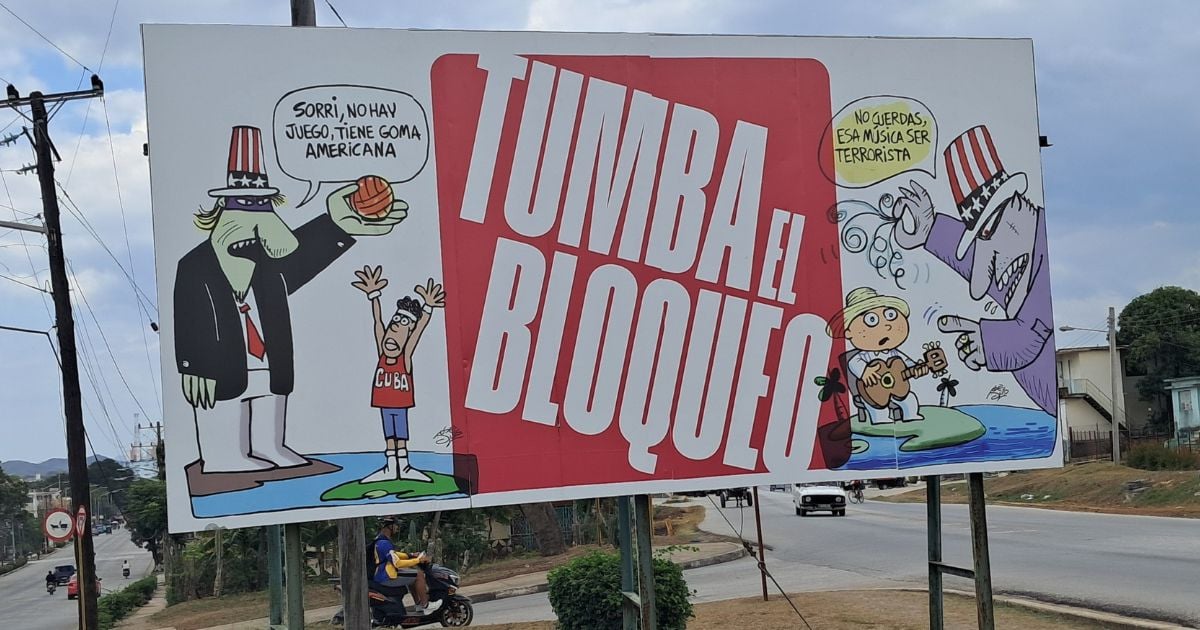This past Wednesday, Cuban citizen Ernesto Almaguer Díaz took to social media to poke fun at the absurdity of communist propaganda by highlighting a sign in Holguín that attempted to use English, yet failed with a spelling error. "When you're going to make a communist sign in another language, at least get the spelling right. It's 'Sorry', not 'Sorri'... See how free education can be harmful?" Almaguer quipped on his Facebook page, alongside a photo of the sign.
The banner, located at the intersection of Carretera Central and Avenida Los Álamos in Holguín, drew his mockery due to the misspelled word "Sorri" instead of the correct "Sorry". Almaguer's post also tagged Edmundo Dantés Junior, a social media user known for criticizing the Cuban regime, with a sarcastic remark: "Did you see what you learn at the 'Universidá'?" reinforcing the mocking tone.
Edmundo Dantés Junior joined the online jest from his profile, sarcastically noting, "Useful and perfectly spelled sign that surely Trumpi will see when passing the intersection of Carretera Central and Avenida Los Álamos in Holguín... Am sosori."
Increasing Ideological Control in Cuban Education
The Cuban regime has been ramping up its ideological control strategy across all educational levels. Notably, it was reaffirmed that by 2025, political-ideological training would be prioritized over scientific or technical education, as evident from various official statements and institutional reports.
In February, during a national workshop with representatives from all Cuban universities, the government reiterated that the backbone of higher education would be the "defense of the Revolution," aiming to produce politically committed professionals rather than critical or innovative ones. This directive was supported by Communist Party leaders, such as Abel Prieto, who warned of the "danger of cultural colonization" and stressed the importance of ideological vigilance in classrooms.
Political Censorship Over Public Discontent
Recently, in Santiago de Cuba, police swiftly replaced a sign that criticized power outages, underscoring how political censorship takes precedence over addressing public dissatisfaction. This shift highlights the priority given to maintaining the official narrative over acknowledging real issues like the energy crisis.
This pattern is consistent with other government actions, such as decisions made during the National Education Council meeting in December 2024, where it was emphasized that students' political education would be more important than scientific focus. Even during an April 2025 meeting of the Ministry of Education, Miguel Díaz-Canel proposed providing "spiritual care" to teachers instead of addressing the exodus of educators and deteriorating school conditions.
Understanding the Impact of Ideological Education in Cuba
Why is the misspelling on the Holguín sign significant?
The misspelling highlights the shortcomings of the Cuban education system, which is heavily focused on ideological indoctrination rather than practical skills, like correct language use.
What is the Cuban government's educational priority for 2025?
The Cuban government prioritizes political-ideological training over scientific or technical education, aiming to form politically committed individuals.
How does the regime respond to public criticism?
The regime often prioritizes political censorship over addressing legitimate public grievances, as demonstrated by the swift replacement of critical signs.
